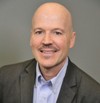Smart meters and the home was a key topic at the M2M Business Exchange in Brussels with speakers covering such areas as the creation of revenue streams, the role of mobile operators, the use of integrated technology and how smart metering can help reduce carbon emissions.
Setting the scene as chair of the Smart Meters & Homes session, Gary Thomas, director of PracticaPro, referred to a recent report from Pike Research that estimated that there would be more than 250 million smart meters installed worldwide by 2010.
Thomas stated that, “The opportunity for consumers to take control of their energy usage, reduce their global footprint and therefore help achieve global emission reduction targets is the really exciting part of smart metering.”
He continued, “Things get even more interesting when you start to think about how smart meters might integrate into the wider smart grid. Potentially they have to communicate with network operators, a whole raft of consumer appliances, electric vehicles, microgeneration units etc., and that integration is where the power of smart meters is unleashed.
“But standing in the way of those benefits are a whole raft of technical, commercial and regulatory, social and data security issues, not to mention the small matter of how to engage consumers in the drive for better energy efficiency.”
In his presentation titled Creating additional revenue streams from smart metering, Rich Hampshire, UK utilities practice lead at Logica, maintained that we need smart metering because climate change, population growth and the availability of primary fuels mean that how we satisfy our energy needs is changing and that delivering sustainable, affordable, secure energy requires action.
He highlighted that today’s challenges were to match demand by increasing generating capacity, addressing the intermittency of renewables, local balancing for decentralised generation and infrastructure development to handle load.
Hampshire identified a key objective as being to engage customers through various approaches, including fiscal stimuli, environmental incentives and rewarding them for behavioural change. He also outlined the importance of utilising the multimedia world to engage consumers and simplify interaction.
Environmental issues came under the spotlight when Maher Chebbo, vice president utilities Europe, Middle East and Africa for SAP, and also chairman of the EU Smart Grids Demands & Smart Metering Group considered, How is Smart Metering ICT contributing to the 2020 goal of radically reducing carbon emissions.
He began by giving five ‘energy insight predictions’ – energy efficiency is the ‘first fuel’ choice, Distributed Energy Resources (DER) as a grid support tool, intelligent grid up to $70 billion in 2013, web portals key for active consumers and generators focused on CO2 reduction.
He stated, “The European Commission has fixed clear goals. In Kyoto in 2007 the different goals for energy reduction, for CO2 reduction and the introduction of new renewables were fixed, requiring 20 percent less energy consumption by 2020 compared to the level in 1990. On 7 December in Copenhagen a United Nations conference will again discuss these targets and need to be even more ambitious, not just thinking about objectives for 2020 but by 2050 having reductions of 80 percent compared to 1990.”
He continued, “These targets have to be reached. In Europe the market is open but is not in the US. Since July 1, 2007 every customer in Europe has had the choice to switch to another supplier. This has meant that utilities are having to reach environmental goals while opening up the market, selling some of their businesses and unbundling other businesses. This construct has meant that in recent years some of the investment has been spent on IT in order to get the IT platforms ready for market openness.”
Chebbo posed the question, “What does this mean with regards to Smart Grids?” He proffered, “If you look at the full package from power production to the customer today there is central production and transmission distribution but in the future there will be millions of distributed generators connected to the network. There will be a hub rather than central and linear distribution down to the customer.
“However, the ICT tools to deliver communication technology and services are not ready. We have some models and some experience regarding how to make customers more empowered? But all of these tools have to be revised when you are working in a situation which is not centralinear distribution but you are working in a hub. There has to be completely new thinking as there will be ten times the data that there is today. So, one major aspect of investment in Smart Grids is making these processes available to a wide range of consumers – mostly residential. Smart Grid and smart metering investments are required.
In the presentation, Determining the role of the mobile operator in delivering smart metering, Valerie Le Peltier, director machine to machine verticals for Orange Group, offered another perspective.
“Smart metering is a fantastic opportunity and for us as a telecommunication operator it is also the beginning of a new story. It is the opportunity for rolling out new infrastructures that could be used for other uses and in particular smart city use cases. In some instances new infrastructures will have to be rolled out which, of course, is very complicated, it varies from one country to the next and from one energy to the next.”
Le Peltier commented, “The telecommunication operators are usually called for with regards to the long distance part of the picture and we do want to be there and address the market properly. However, the other area where we think that telecommunications operators can add value is the local data collection network, in particular, rolling out new radio networks that collect such data.”
She added, “As has been mentioned in an earlier presentation GSM might not be appropriate in all cases to connect the meter up to the information system of the utility and also it might not be economically viable to roll out based on GPRS. So, we think there is a business case for advanced radio technologies – mesh networks.
Richard Mumford
Setting the scene as chair of the Smart Meters & Homes session, Gary Thomas, director of PracticaPro, referred to a recent report from Pike Research that estimated that there would be more than 250 million smart meters installed worldwide by 2010.
Thomas stated that, “The opportunity for consumers to take control of their energy usage, reduce their global footprint and therefore help achieve global emission reduction targets is the really exciting part of smart metering.”
He continued, “Things get even more interesting when you start to think about how smart meters might integrate into the wider smart grid. Potentially they have to communicate with network operators, a whole raft of consumer appliances, electric vehicles, microgeneration units etc., and that integration is where the power of smart meters is unleashed.
“But standing in the way of those benefits are a whole raft of technical, commercial and regulatory, social and data security issues, not to mention the small matter of how to engage consumers in the drive for better energy efficiency.”
In his presentation titled Creating additional revenue streams from smart metering, Rich Hampshire, UK utilities practice lead at Logica, maintained that we need smart metering because climate change, population growth and the availability of primary fuels mean that how we satisfy our energy needs is changing and that delivering sustainable, affordable, secure energy requires action.
He highlighted that today’s challenges were to match demand by increasing generating capacity, addressing the intermittency of renewables, local balancing for decentralised generation and infrastructure development to handle load.
Hampshire identified a key objective as being to engage customers through various approaches, including fiscal stimuli, environmental incentives and rewarding them for behavioural change. He also outlined the importance of utilising the multimedia world to engage consumers and simplify interaction.
Environmental issues came under the spotlight when Maher Chebbo, vice president utilities Europe, Middle East and Africa for SAP, and also chairman of the EU Smart Grids Demands & Smart Metering Group considered, How is Smart Metering ICT contributing to the 2020 goal of radically reducing carbon emissions.
He began by giving five ‘energy insight predictions’ – energy efficiency is the ‘first fuel’ choice, Distributed Energy Resources (DER) as a grid support tool, intelligent grid up to $70 billion in 2013, web portals key for active consumers and generators focused on CO2 reduction.
He stated, “The European Commission has fixed clear goals. In Kyoto in 2007 the different goals for energy reduction, for CO2 reduction and the introduction of new renewables were fixed, requiring 20 percent less energy consumption by 2020 compared to the level in 1990. On 7 December in Copenhagen a United Nations conference will again discuss these targets and need to be even more ambitious, not just thinking about objectives for 2020 but by 2050 having reductions of 80 percent compared to 1990.”
He continued, “These targets have to be reached. In Europe the market is open but is not in the US. Since July 1, 2007 every customer in Europe has had the choice to switch to another supplier. This has meant that utilities are having to reach environmental goals while opening up the market, selling some of their businesses and unbundling other businesses. This construct has meant that in recent years some of the investment has been spent on IT in order to get the IT platforms ready for market openness.”
Chebbo posed the question, “What does this mean with regards to Smart Grids?” He proffered, “If you look at the full package from power production to the customer today there is central production and transmission distribution but in the future there will be millions of distributed generators connected to the network. There will be a hub rather than central and linear distribution down to the customer.
“However, the ICT tools to deliver communication technology and services are not ready. We have some models and some experience regarding how to make customers more empowered? But all of these tools have to be revised when you are working in a situation which is not centralinear distribution but you are working in a hub. There has to be completely new thinking as there will be ten times the data that there is today. So, one major aspect of investment in Smart Grids is making these processes available to a wide range of consumers – mostly residential. Smart Grid and smart metering investments are required.
In the presentation, Determining the role of the mobile operator in delivering smart metering, Valerie Le Peltier, director machine to machine verticals for Orange Group, offered another perspective.
“Smart metering is a fantastic opportunity and for us as a telecommunication operator it is also the beginning of a new story. It is the opportunity for rolling out new infrastructures that could be used for other uses and in particular smart city use cases. In some instances new infrastructures will have to be rolled out which, of course, is very complicated, it varies from one country to the next and from one energy to the next.”
Le Peltier commented, “The telecommunication operators are usually called for with regards to the long distance part of the picture and we do want to be there and address the market properly. However, the other area where we think that telecommunications operators can add value is the local data collection network, in particular, rolling out new radio networks that collect such data.”
She added, “As has been mentioned in an earlier presentation GSM might not be appropriate in all cases to connect the meter up to the information system of the utility and also it might not be economically viable to roll out based on GPRS. So, we think there is a business case for advanced radio technologies – mesh networks.
Richard Mumford


